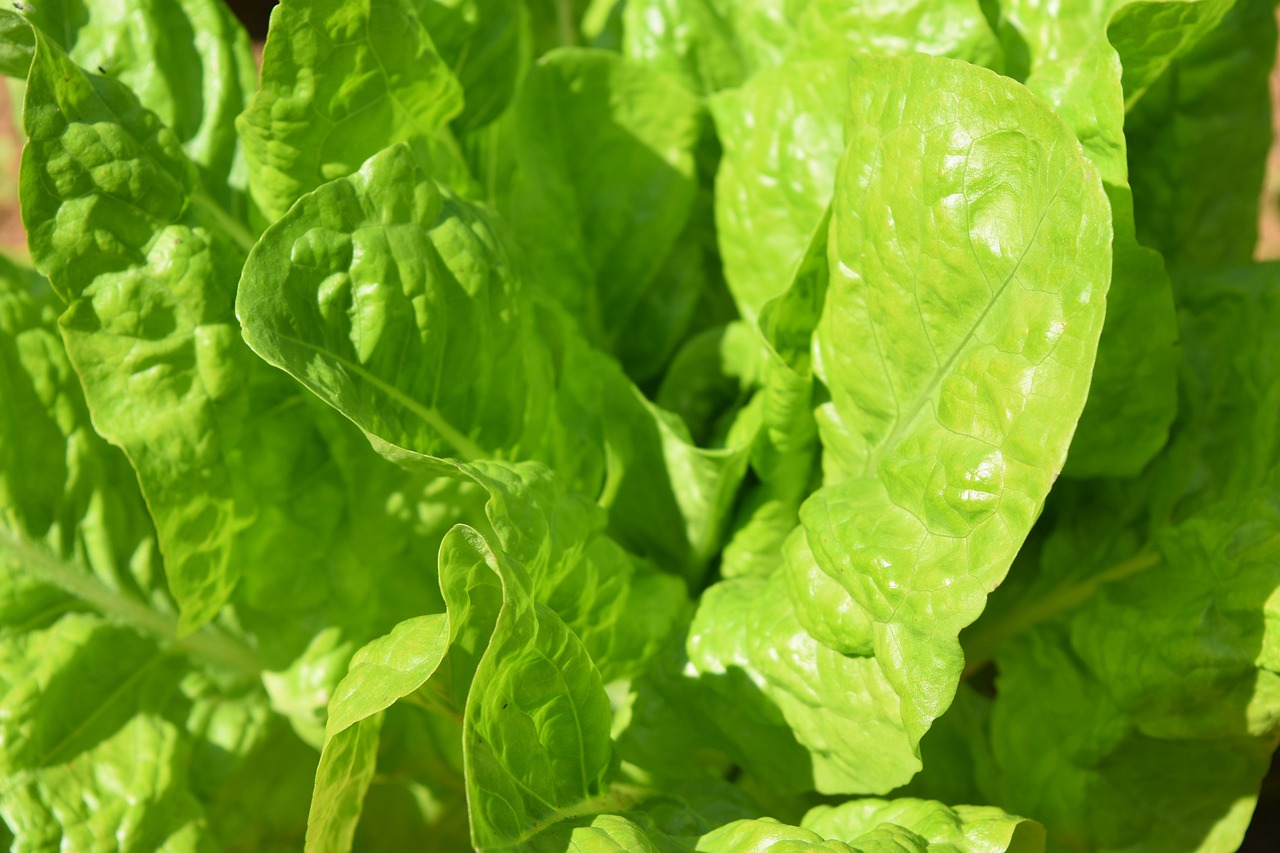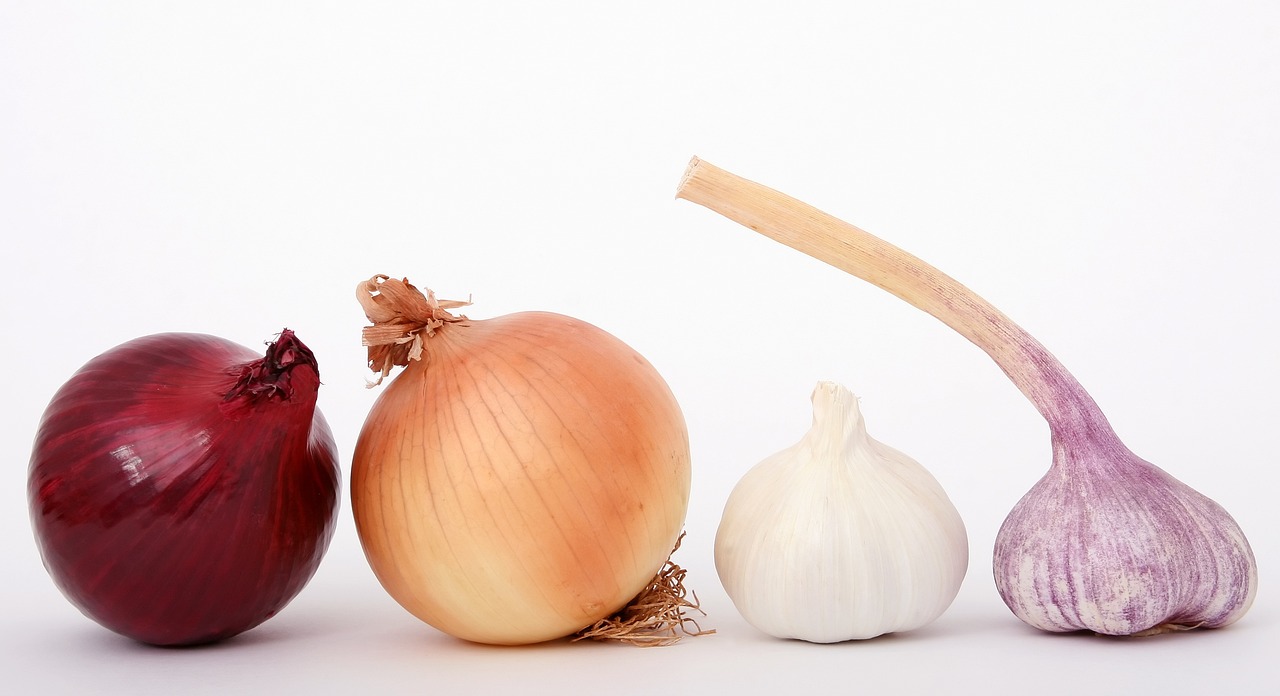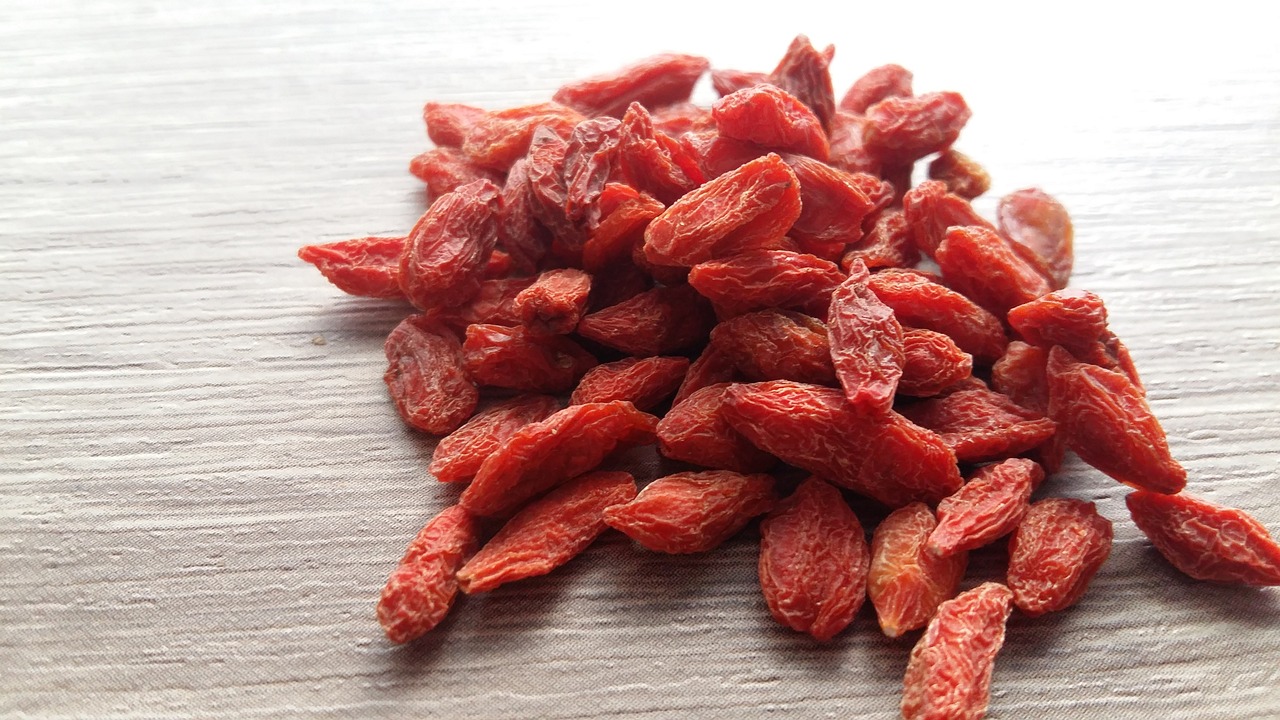Table of Contents
In a world brimming with health fads and dietary trends, the importance of antioxidants often takes center stage. Antioxidant-rich foods have earned their reputation as nutritional powerhouses, serving as natural defenders against cellular damage and promoting overall health. In this article, we will delve into the world of antioxidants, exploring their significance, their sources and the remarkable ways they protect our well-being.
In a world brimming with health fads and dietary trends, the importance of antioxidants often takes center stage. Antioxidant-rich foods have earned their reputation as nutritional powerhouses, serving as natural defenders against cellular damage and promoting overall health. In this article, we will delve into the world of antioxidants, exploring their significance, their sources and the remarkable ways they protect our well-being.
In our fast-paced, modern lives, the quest for better health and longevity has led to a multitude of diets, supplements and wellness regimens. However, amidst this sea of health advice, antioxidants stand out as timeless and essential components of a truly balanced diet. These remarkable compounds act as the body’s loyal guardians, tirelessly working to counteract the harmful effects of oxidative stress.
Oxidative stress, often caused by an imbalance between free radicals and antioxidants in the body, is an underlying factor in many chronic diseases and the aging process itself. By embracing a diet rich in antioxidants, we empower our bodies to combat this stress head-on. But what exactly makes these compounds so crucial?
Antioxidants are the unsung heroes of our biological defense system. They are molecules that donate electrons to neutralize free radicals, preventing them from wreaking havoc on our cells. These molecules can be found in various forms, including vitamins like C and E, minerals like selenium and a vast array of phytochemicals found in fruits, vegetables and other plant-based foods.
The beauty of antioxidants lies in their multifaceted protection. They not only guard our cells against oxidative stress but also bolster our immune system’s capabilities. This means that when we consume antioxidant-rich foods, we aren’t just fortifying ourselves against potential health issues; we are also bolstering our body’s natural ability to fend off infections and illnesses.
As we continue our journey through the world of antioxidants, we will uncover a cornucopia of sources that can easily be incorporated into our daily diets. From the vibrant hues of berries and dark leafy greens to the inviting aroma of spices like turmeric and cinnamon, nature has provided us with an enticing array of options.
In the coming sections, we will explore these sources in greater detail, revealing their specific antioxidant profiles and unique health benefits. We will also delve into the latest scientific research, uncovering exciting discoveries about the role of antioxidants in cognitive health, heart protection and radiant skin.
So, join us as we embark on this enlightening exploration of antioxidants, where we’ll discover how these remarkable compounds are not just a dietary trend but an enduring key to vitality and longevity in our ever-evolving quest for optimal health.
To expand your knowledge on this subject, make sure to read on at this location: Antioxidants | The Nutrition Source | Harvard T.H. Chan School of …
Understanding Oxidative Stress
Before we dive into the benefits of antioxidant-rich foods, it’s crucial to grasp the concept of oxidative stress. Our bodies produce reactive molecules called free radicals during metabolism. While they play a role in various biological processes, an excess of free radicals can cause oxidative stress. This stress leads to damage to cells, proteins and DNA, contributing to aging and various chronic diseases such as cancer, heart disease and neurodegenerative disorders.
Understanding the concept of oxidative stress is fundamental to appreciating the incredible importance of antioxidant-rich foods in maintaining our health and well-being. Let’s delve deeper into this concept and explore how antioxidants can act as our body’s defenders against the harmful effects of free radicals:
Balancing Act: Our bodies continually generate free radicals as part of their natural metabolic processes. These molecules serve important functions, such as aiding in immune responses and cell signaling. However, maintaining a delicate balance is crucial. When free radicals outnumber antioxidants in the body, oxidative stress occurs.
Cellular Warfare: Oxidative stress essentially sets off a battle within our cells. Free radicals, being highly reactive, seek to stabilize themselves by “stealing” electrons from other molecules, which can lead to cellular damage. This damage can manifest as the aging of skin, the hardening of arteries or even the transformation of healthy cells into cancerous ones.
Aging and Chronic Disease: The cumulative effects of oxidative stress contribute to the aging process and increase the risk of chronic diseases. For instance, oxidative damage to DNA can trigger mutations that lead to cancer. Similarly, oxidative stress plays a significant role in the development of heart disease and neurodegenerative disorders like Alzheimer’s and Parkinson’s disease.
Antioxidants to the Rescue: Antioxidants are the superheroes of this cellular battle. They have the remarkable ability to neutralize free radicals by donating electrons without becoming unstable themselves. This “quenching” action prevents further damage to cells and tissues.
Rich Dietary Sources: Antioxidants are found abundantly in various foods, particularly fruits, vegetables, nuts and whole grains. Examples of powerful antioxidants include vitamins C and E, beta-carotene, selenium and flavonoids. Each type of antioxidant has unique properties and strengths.
Holistic Health Benefits: Consuming a diet rich in antioxidant-rich foods provides holistic health benefits. It supports the body’s natural defense mechanisms against oxidative stress, potentially slowing down the aging process and reducing the risk of chronic diseases.
Skin Health: Antioxidants are known to benefit skin health by protecting it from the damaging effects of ultraviolet (UV) radiation and pollution. They can help maintain youthful and radiant skin by reducing wrinkles and fine lines.
Brain Protection: Emerging research suggests that antioxidants may play a role in preserving cognitive function and reducing the risk of neurodegenerative conditions. They help combat the oxidative damage that contributes to brain aging.
Heart Health: Antioxidants also promote heart health by protecting against the oxidative damage that can lead to atherosclerosis and heart disease. They support healthy blood vessels and reduce inflammation.
Incorporating antioxidant-rich foods into your diet is a proactive way to bolster your body’s defenses against oxidative stress. These foods not only contribute to a youthful appearance but also promote long-term health by reducing the risk of chronic diseases. So, by embracing a diet rich in colorful fruits and vegetables, nuts and whole grains, you are not only nourishing your taste buds but also safeguarding your well-being against the harmful effects of free radicals.
To delve further into this matter, we encourage you to check out the additional resources provided here: Plant polyphenols as dietary antioxidants in human health and …

The Role of Antioxidants
Antioxidants are natural compounds found in certain foods that combat oxidative stress by neutralizing free radicals. They act as the body’s defense mechanism, helping to prevent or mitigate the cellular damage caused by these unstable molecules. Antioxidants can be categorized into several types, including vitamins (such as vitamin C and E), minerals (like selenium) and phytochemicals (found in plant-based foods).
Delving deeper into the world of antioxidants unveils their multifaceted role in safeguarding our health and well-being. Here’s a more comprehensive exploration of the diverse categories and sources of antioxidants, as well as their profound impact on our overall vitality:
Vitamin Powerhouses: Antioxidant vitamins, such as vitamin C and E, are renowned for their protective capabilities. Vitamin C, found abundantly in citrus fruits, strawberries and kiwi, is a potent water-soluble antioxidant that helps combat oxidative stress in bodily fluids. Vitamin E, found in nuts, seeds and vegetable oils, excels in protecting cell membranes from free radical damage.
Mineral Defenders: Minerals like selenium play an indispensable role in antioxidant defense. Selenium, found in foods like Brazil nuts, seafood and whole grains, is an essential component of antioxidant enzymes that neutralize harmful free radicals and help maintain cellular health.
Phytochemical Champions: Phytochemicals are naturally occurring compounds in plants that possess impressive antioxidant properties. These bioactive substances include flavonoids (found in berries, apples and tea), carotenoids (abundant in carrots, sweet potatoes and spinach) and polyphenols (abundant in green tea, red wine and dark chocolate). These phytochemicals not only help protect plants from environmental stressors but also provide health benefits to those who consume them.
Collaborative Action: Antioxidants often work together in synergy, enhancing each other’s effectiveness. For instance, vitamin C can regenerate vitamin E after it has neutralized a free radical, extending its antioxidant capabilities. This collaborative action ensures a robust defense against oxidative stress.
Aging Gracefully: By reducing oxidative damage, antioxidants may contribute to graceful aging. They can help slow down the cellular aging process, potentially promoting longevity and maintaining a youthful appearance.
Immune Support: Antioxidants play a crucial role in bolstering the immune system. By neutralizing free radicals, they protect immune cells from damage and ensure their optimal function, which is essential for defending against infections and diseases.
Heart Health: Certain antioxidants, like the polyphenols in red wine and dark chocolate, have been associated with heart health. They may help reduce the risk of heart disease by protecting blood vessels and promoting healthy blood pressure.
Cancer Prevention: Antioxidants, particularly those found in cruciferous vegetables (e.g., broccoli and cauliflower), have been studied for their potential role in cancer prevention. They may help inhibit the growth of cancer cells and protect DNA from mutations caused by oxidative stress.
Eye Protection: Antioxidants like lutein and zeaxanthin, found in leafy greens and colorful vegetables, accumulate in the eyes and help protect against age-related macular degeneration and cataracts.
Brain Boost: Emerging research suggests that antioxidants, particularly flavonoids found in berries and dark chocolate, may support brain health and cognition. They can help improve blood flow to the brain and protect against neurodegenerative conditions.
Incorporating a colorful and diverse array of antioxidant-rich foods into your diet is a proactive step toward nurturing your body’s defense mechanisms. These natural compounds offer a spectrum of health benefits that extend far beyond combating oxidative stress, contributing to your overall vitality and well-being at every stage of life.
Should you desire more in-depth information, it’s available for your perusal on this page: Antioxidants | The Nutrition Source | Harvard T.H. Chan School of …

Berries
Blueberries, strawberries, raspberries and blackberries are packed with antioxidants, particularly vitamin C and various phytochemicals. They have been shown to improve cognitive function and reduce the risk of chronic diseases.
Certainly, let’s delve deeper into the remarkable benefits of berries, highlighting their specific antioxidants, cognitive health advantages and how they contribute to the prevention of chronic diseases.
A Bounty of Antioxidants: Berries, including blueberries, strawberries, raspberries and blackberries, are nature’s treasure troves of antioxidants. These vibrant fruits are rich in vitamin C, a potent antioxidant known for its immune-boosting properties. Additionally, they contain a diverse range of phytochemicals, such as anthocyanins, flavonols and polyphenols, which contribute to their vivid colors and health benefits.
Enhancing Cognitive Function: The antioxidants and phytochemicals found in berries are not only delicious but also excellent for brain health. Studies have demonstrated that regular consumption of berries can enhance cognitive function. The compounds in berries help protect brain cells from oxidative stress and inflammation, which are linked to age-related cognitive decline and neurodegenerative diseases like Alzheimer’s.
Promoting Memory and Learning: Berries’ cognitive benefits extend to improving memory and learning abilities. Research has shown that the antioxidants in berries can enhance signaling pathways in the brain, supporting synaptic plasticity and neurogenesis. This means that including berries in your diet may help you remember better and learn more effectively.
Reducing Chronic Disease Risk: Berries’ antioxidant and anti-inflammatory properties also make them valuable in reducing the risk of chronic diseases. Regular consumption of berries has been associated with a lower risk of conditions such as heart disease, diabetes and certain types of cancer. The phytochemicals in berries help combat oxidative stress and inflammation, two key drivers of chronic diseases.
Heart Health Benefits: Berries contribute to cardiovascular health by improving cholesterol profiles, reducing blood pressure and enhancing blood vessel function. Their fiber content aids in lowering LDL cholesterol levels, while antioxidants help protect blood vessels from damage.
Diabetes Management: Berries have a low glycemic index and can help regulate blood sugar levels. They slow down the absorption of glucose, preventing rapid spikes and crashes in blood sugar. This property is particularly beneficial for individuals with diabetes or those at risk of developing the condition.
Cancer Prevention: The phytochemicals in berries have shown promise in preventing and slowing the progression of certain types of cancer. They may inhibit the growth of cancer cells and promote their apoptosis (cell death). While more research is needed, including berries in a cancer-preventive diet is a wise choice.
Skin Health: Antioxidants in berries can also contribute to healthy skin by combating free radicals and promoting collagen production. This can help maintain youthful-looking skin and protect it from UV damage.
In conclusion, berries, with their array of antioxidants, cognitive benefits and disease-fighting properties, are indeed nutritional powerhouses. Incorporating these colorful fruits into your diet can be a tasty and effective way to support brain health, reduce the risk of chronic diseases and promote overall well-being. Whether enjoyed fresh, frozen or in various culinary creations, berries are a delightful addition to a healthy lifestyle.
Looking for more insights? You’ll find them right here in our extended coverage: Antioxidants – Better Health Channel

Dark Leafy Greens
Spinach, kale and Swiss chard are rich sources of antioxidants, including vitamins A, C and K. They also provide essential minerals like iron and calcium.
Spinach, kale and Swiss chard deserve a spotlight in your diet, boasting an impressive lineup of antioxidants. Packed with vitamins A, C and K, these leafy greens actively combat oxidative stress, promoting cellular health and overall well-being. Additionally, they offer vital minerals such as iron, crucial for oxygen transport and calcium, essential for strong bones and teeth. Embrace these nutrient-packed greens as dietary superheroes, fortifying your body with the nutrients it needs for a robust and thriving life.
Don’t stop here; you can continue your exploration by following this link for more details: Antioxidants – Better Health Channel

Nuts and Seeds
Almonds, walnuts, flaxseeds and chia seeds contain antioxidants, healthy fats and fiber. These foods support heart health and reduce inflammation.
Exploring the world of heart-healthy foods, we find a treasure trove of options that not only tantalize the taste buds but also serve as potent allies in promoting cardiovascular well-being. Among these nutritional gems, almonds, walnuts, flaxseeds and chia seeds stand out as champions in the quest for a healthy heart.
Almonds: These small wonders are brimming with heart-boosting nutrients. Almonds are a stellar source of monounsaturated fats, which are known to support heart health by reducing LDL cholesterol levels. Additionally, they provide a satisfying crunch and a natural creaminess that elevates both savory and sweet dishes. A handful of almonds as a snack or a sprinkle over your morning oatmeal can go a long way in supporting your cardiovascular system.
Walnuts: Walnuts, with their distinctively earthy flavor and crunchy texture, are a heart-healthy superstar. They are rich in omega-3 fatty acids, specifically alpha-linolenic acid (ALA), which has been linked to reduced inflammation and improved heart health. Incorporating a handful of walnuts into your daily routine can be a simple yet powerful step toward protecting your cardiovascular system.
Flaxseeds: These tiny seeds pack a powerful punch when it comes to heart health. Flaxseeds are a prime source of alpha-linolenic acid (ALA), similar to what you find in walnuts. ALA is known to support heart health by reducing inflammation and improving blood vessel function. Grinding flaxseeds or using flaxseed oil as a dressing in your meals is an excellent way to reap their cardiovascular benefits.
Chia Seeds: Chia seeds are nutrient-rich powerhouses that can contribute to a heart-healthy diet. They contain a significant amount of alpha-linolenic acid (ALA) as well as soluble fiber. This combination can help lower LDL cholesterol levels and reduce the risk of heart disease. Chia seeds can be easily added to smoothies, yogurt or oatmeal for an extra heart-boosting touch.
These heart-healthy foods not only provide a delightful variety of flavors and textures but also deliver a potent blend of antioxidants, healthy fats and fiber. By incorporating almonds, walnuts, flaxseeds and chia seeds into your meals and snacks, you’re taking proactive steps to support your cardiovascular system, reduce inflammation and promote overall well-being. So, whether you’re tossing them into your morning bowl of cereal, sprinkling them over a vibrant salad or enjoying them as a wholesome snack, these heart-boosting foods are there to nourish your body and protect your heart for years to come.
If you’d like to dive deeper into this subject, there’s more to discover on this page: Antioxidants – Better Health Channel

Colorful Vegetables
Carrots, sweet potatoes and bell peppers are high in beta-carotene, a potent antioxidant that supports eye health and immune function.
The vibrant colors of carrots, sweet potatoes and bell peppers are not just visually appealing; they also signal a treasure trove of health benefits. These foods are rich in beta-carotene, a powerful antioxidant with a range of advantages that extend beyond their delicious flavors.
Vision Enhancement: Beta-carotene is often referred to as “provitamin A” because it can be converted into active vitamin A in the body. This conversion is essential for maintaining good vision. Vitamin A is a key component of the retina and plays a pivotal role in low-light and color vision. Including beta-carotene-rich foods like carrots and bell peppers in your diet can help ensure your eyes function optimally, reducing the risk of vision problems.
Immune System Boost: Beta-carotene is renowned for its immune-boosting properties. It supports the production and activity of immune cells, enhancing the body’s ability to fend off infections and illnesses. Consuming foods high in beta-carotene, such as sweet potatoes, can be especially beneficial during cold and flu season, helping to keep your immune system robust.
Skin Health: Beta-carotene contributes to healthy skin by protecting it from UV damage and promoting skin cell turnover. It’s like a natural shield against the harmful effects of the sun. While it’s not a substitute for sunscreen, incorporating beta-carotene-rich foods into your diet can complement your sun protection routine and contribute to radiant skin.
Antioxidant Power: As an antioxidant, beta-carotene combats free radicals in the body. Free radicals are unstable molecules that can damage cells and DNA, potentially leading to chronic diseases and aging. By neutralizing these free radicals, beta-carotene helps protect against oxidative stress and reduces the risk of chronic illnesses.
Cancer Prevention: Some studies suggest that a diet rich in beta-carotene may reduce the risk of certain types of cancer, including lung and prostate cancer. While more research is needed, adding carrots, sweet potatoes and bell peppers to your meals can be a valuable step in a cancer-preventive dietary strategy.
Heart Health: Beta-carotene’s antioxidant properties may also contribute to heart health by reducing inflammation and improving overall cardiovascular function. It helps maintain healthy blood vessels and may play a role in reducing the risk of heart disease.
Including a variety of beta-carotene-rich foods in your diet is a flavorful way to support your health. Whether you’re enjoying the sweetness of roasted sweet potatoes, the crunch of fresh bell peppers or the earthy taste of carrots, you’re not only treating your taste buds but also nourishing your body with essential nutrients that bolster your eyes, immune system, skin and overall well-being.
For a comprehensive look at this subject, we invite you to read more on this dedicated page: Antioxidants | The Nutrition Source | Harvard T.H. Chan School of …

Green Tea
This beverage contains catechins, which are powerful antioxidants that have been linked to various health benefits, including improved heart health and weight management.
This beverage, often enjoyed as a soothing ritual, holds within it a secret treasure: catechins. These remarkable compounds, brimming with potent antioxidant properties, are like guardians of your well-being, offering a multitude of health advantages. Among their many virtues, catechins have been closely associated with two particularly crucial aspects of our health: heart health and weight management.
Heart Health: Catechins act as steadfast allies in the quest for a healthy heart. They diligently combat the harmful effects of oxidative stress, reducing the risk of heart disease. By bolstering the health of your blood vessels and helping to lower blood pressure, catechins contribute to a stronger cardiovascular system. With each sip, you’re not just enjoying a beverage; you’re nurturing your heart and promoting its longevity.
Weight Management: Catechins also play a significant role in your journey toward a healthier weight. These antioxidants have the remarkable ability to boost metabolism and support fat oxidation. This means that by incorporating catechin-rich beverages into your routine, you’re giving your body an extra edge in its efforts to manage weight effectively. It’s like having a reliable partner in your corner as you work towards your fitness goals.
So, with every cup of this beverage, you’re not just indulging in a delightful taste; you’re also embracing the potential for improved heart health and weight management. It’s a small yet significant step towards a healthier, more vibrant you. So, savor the flavor, knowing that each sip brings you closer to a well-balanced and thriving life.
For additional details, consider exploring the related content available here Plant polyphenols as dietary antioxidants in human health and …

Dark Chocolate
High-quality dark chocolate with a cocoa content of at least 70% is a delicious source of antioxidants, particularly flavonoids. It can help lower blood pressure and improve mood.
Indulging in high-quality dark chocolate with a cocoa content of at least 70% isn’t just a delightful treat for your taste buds; it also offers a range of impressive health benefits, primarily due to its rich concentration of antioxidants, particularly flavonoids. Here’s why savoring a square of dark chocolate can be a joyful boost for your well-being:
Antioxidant Abundance: Dark chocolate is a treasure trove of antioxidants, specifically flavonoids. These potent compounds have the remarkable ability to neutralize harmful free radicals in your body, protecting your cells from oxidative stress and potential damage.
Heart-Healthy: The flavonoids in dark chocolate have been linked to heart health. They can help lower blood pressure by promoting the relaxation of blood vessels, improving blood flow and reducing inflammation. Consuming dark chocolate in moderation may contribute to a healthier cardiovascular system.
Mood Enhancement: Dark chocolate contains various compounds that can positively impact your mood. It stimulates the production of endorphins, often referred to as “feel-good” hormones, leading to a sense of happiness and contentment. Additionally, dark chocolate contains serotonin precursors, which can help regulate mood.
Brain Boost: Some studies suggest that dark chocolate consumption may enhance cognitive function and brain health. The antioxidants in dark chocolate may improve blood flow to the brain, potentially leading to better cognitive performance and a reduced risk of age-related cognitive decline.
Stress Reduction: Dark chocolate may have stress-reducing effects. It contains magnesium, a mineral known for its calming properties. Consuming dark chocolate in moderation may help alleviate feelings of stress and anxiety.
Appetite Control: The rich flavor and satisfying texture of dark chocolate can help curb cravings and reduce the desire for sweet, salty or fatty foods. This can be especially beneficial for weight management when consumed mindfully.
Improved Skin Health: The antioxidants in dark chocolate can contribute to healthier skin by protecting it from damage caused by UV rays and other environmental factors. Over time, this can lead to a more radiant complexion.
Moderation Is Key: While dark chocolate offers numerous health benefits, it’s essential to enjoy it in moderation. Its calorie and sugar content can add up quickly, so savoring a small serving a few times a week is a prudent approach.
Pairing Possibilities: Dark chocolate pairs exceptionally well with a variety of foods and beverages. Whether you pair it with red wine, fresh berries or a hot cup of herbal tea, the combinations are endless and can elevate your tasting experience.
Quality Matters: Opt for high-quality dark chocolate with a cocoa content of at least 70% to maximize its health benefits. Higher cocoa content typically means more antioxidants and less sugar.
Incorporating a square or two of high-quality dark chocolate into your daily routine can be a delightful way to promote your overall well-being. As you savor its rich flavor and enjoy its potential health benefits, remember that balance and moderation are key to reaping the rewards of this decadent treat.
Don’t stop here; you can continue your exploration by following this link for more details: 12 Healthy Foods High in Antioxidants

Spices and Herbs
Turmeric, cinnamon and ginger are known for their antioxidant and anti-inflammatory properties. They can be added to dishes or brewed as teas.
The enticing aroma of spices like turmeric, cinnamon and ginger not only elevates the flavors of our dishes but also brings a wealth of health benefits to the table. These culinary treasures have long been celebrated for their potent antioxidant and anti-inflammatory properties, making them invaluable additions to your culinary repertoire and wellness routine.
Turmeric, with its bright golden hue, contains a compound called curcumin, which is a powerhouse of antioxidants. Curcumin has been studied extensively for its anti-inflammatory effects, which can help alleviate symptoms of conditions like arthritis and may even play a role in reducing the risk of chronic diseases. To incorporate turmeric into your diet, you can sprinkle it on roasted vegetables, add it to soups or create a warming turmeric latte for a comforting and healthful beverage.
Cinnamon, with its warm and inviting flavor, is another spice that packs a punch in terms of health benefits. Cinnamon is known to have anti-inflammatory and antioxidant properties that can help lower the risk of heart disease and may contribute to better blood sugar control. You can sprinkle cinnamon on your morning oatmeal, blend it into smoothies or stir it into a cup of hot tea to enjoy its delightful taste and potential health advantages.
Ginger, with its spicy and slightly sweet flavor, has been revered for centuries for its medicinal properties. It’s well-known for its anti-inflammatory effects, which can help reduce muscle pain and may alleviate symptoms of osteoarthritis. Ginger is versatile and can be added to both savory and sweet dishes. It’s a staple in many Asian cuisines and is also a popular choice for making soothing ginger tea, which can aid digestion and provide relief from nausea.
Incorporating these spices into your culinary creations not only enhances the flavor but also brings a holistic approach to health. Whether you’re sprinkling turmeric on your vegetables, savoring the sweet warmth of cinnamon in your breakfast or brewing a cup of ginger tea, you’re not just indulging your taste buds; you’re nourishing your body with nature’s gifts. These spices are a testament to the idea that delicious food can also be medicine, adding an extra layer of joy and well-being to your everyday meals and rituals.
Looking for more insights? You’ll find them right here in our extended coverage: The total antioxidant content of more than 3100 foods, beverages …

Benefits of Antioxidant-Rich Foods
Consuming a diet rich in antioxidants offers a range of health benefits:
Consuming a diet rich in antioxidants offers a range of health benefits that can truly transform your well-being. Antioxidants are nature’s defenders, shielding your body from the damaging effects of free radicals and oxidative stress. Here’s why integrating these powerful compounds into your diet is a smart choice for your health:
Cellular Protection: Antioxidants act as guardians of your cells, preventing damage caused by free radicals. This protection can help reduce the risk of chronic diseases, including cancer and heart disease, by minimizing the cellular mutations and inflammation associated with these conditions.
Youthful Skin: Antioxidants like vitamins C and E can promote healthy, radiant skin by counteracting the effects of UV rays and environmental pollutants. They aid in collagen production, which maintains skin elasticity and reduces the appearance of fine lines and wrinkles.
Improved Immunity: Antioxidants bolster your immune system, helping it fend off infections and illnesses more effectively. A well-supported immune system is better equipped to combat viruses, bacteria and other pathogens that can cause sickness.
Heart Health: Antioxidants can reduce the risk of heart disease by preventing the oxidation of LDL cholesterol. When LDL cholesterol becomes oxidized, it can contribute to the formation of plaque in the arteries. Antioxidants help keep your cardiovascular system healthy.
Eye Protection: Certain antioxidants like lutein and zeaxanthin are essential for eye health. They help protect your eyes from harmful UV rays and oxidative damage, reducing the risk of age-related eye conditions like cataracts and macular degeneration.
Mental Clarity: Antioxidants are believed to support cognitive function and mental clarity by reducing oxidative stress in the brain. This may help delay age-related cognitive decline and improve memory and concentration.
Anti-Inflammatory Effects: Many chronic diseases are linked to inflammation in the body. Antioxidants, especially those found in fruits and vegetables, can help reduce inflammation and mitigate the risk of conditions like arthritis and diabetes.
To harness the benefits of antioxidants, aim to include a variety of colorful fruits and vegetables in your diet. Berries, citrus fruits, leafy greens and nuts are excellent sources. Additionally, spices like turmeric and cinnamon, as well as beverages like green tea and red wine (in moderation), are rich in antioxidants.
By embracing an antioxidant-rich diet, you’re not just making a choice for better health; you’re investing in a vibrant, energetic and resilient future. These tiny, mighty compounds play a significant role in protecting and preserving your body, making every meal a step towards a healthier and happier you.
You can also read more about this here: Antioxidants and Exercise Performance: With a Focus on Vitamin E …

Cellular Protection
Antioxidants help shield cells from oxidative damage, slowing down the aging process and reducing the risk of chronic diseases.
Antioxidants, those mighty defenders within our bodies, play a multifaceted role in promoting not only our longevity but also our overall well-being. These remarkable compounds are akin to the guardians of our cells, tirelessly patrolling the body to neutralize harmful molecules known as free radicals. In doing so, antioxidants contribute to a host of benefits that extend far beyond just the slowing down of the aging process.
Youthful Vitality: One of the most celebrated attributes of antioxidants is their ability to combat oxidative stress, a major contributor to premature aging. By neutralizing free radicals, antioxidants help preserve the integrity of our cells and tissues, preventing the signs of aging from taking hold. This means fewer wrinkles, a more vibrant complexion and a youthful radiance that speaks of health and vitality.
Reduced Chronic Disease Risk: Oxidative damage isn’t just about wrinkles and fine lines; it’s also a significant factor in the development of chronic diseases. Antioxidants act as shields, protecting our cells and DNA from the harmful effects of free radicals. This defense extends to reducing the risk of chronic conditions like heart disease, cancer and neurodegenerative disorders. It’s a powerful strategy for safeguarding long-term health.
Enhanced Immunity: A robust immune system is vital for warding off infections and illnesses. Antioxidants contribute to immune health by protecting immune cells from oxidative stress, allowing them to function optimally. This means a better defense against pathogens and a lower susceptibility to illnesses.
Skin Health: Your skin, being the body’s largest organ, benefits greatly from antioxidant protection. These compounds help shield skin cells from damage caused by UV radiation, pollution and environmental toxins. In turn, this promotes healthy, radiant skin and reduces the risk of skin conditions and skin cancer.
Cognitive Well-being: Oxidative stress in the brain can lead to cognitive decline and neurodegenerative diseases like Alzheimer’s and Parkinson’s. Antioxidants help safeguard brain cells, promoting cognitive function, memory retention and mental clarity as we age.
Heart Health: A healthy cardiovascular system is essential for overall well-being. Antioxidants, particularly those found in fruits and vegetables, contribute to heart health by protecting blood vessels from oxidative damage, reducing inflammation and improving cholesterol profiles.
To reap the full benefits of antioxidants, it’s essential to incorporate a colorful array of antioxidant-rich foods into your diet. Berries, leafy greens, nuts, seeds and colorful fruits like oranges and berries are excellent choices. Additionally, beverages like green tea and dark chocolate contain potent antioxidants that can complement your diet.
Incorporating these antioxidant-rich foods into your daily meals not only supports your journey to youthful aging but also fortifies your defenses against chronic diseases. So, consider antioxidants your allies in the quest for long-lasting vitality and vibrant well-being and embrace them as a crucial component of your health-conscious lifestyle.
For a comprehensive look at this subject, we invite you to read more on this dedicated page: Antioxidants – Better Health Channel

Immune Support
A robust immune system is essential for overall health and antioxidants play a role in maintaining its function.
Maintaining a robust immune system is paramount for safeguarding our overall health and well-being. This intricate defense system stands as our body’s guardian, protecting us from a myriad of threats, from common colds to more serious infections and diseases. In this intricate tapestry of immune function, antioxidants emerge as crucial players, contributing to the resilience and effectiveness of our immune response.
1. Antioxidants and Immune Support: Antioxidants are a diverse group of compounds found in various foods, most notably in fruits and vegetables. They are known for their ability to neutralize harmful molecules called free radicals, which can damage cells and tissues if left unchecked. By combating oxidative stress caused by free radicals, antioxidants help maintain the integrity of immune cells and prevent their dysfunction.
2. Immune Cell Protection: Our immune system relies on a vast army of specialized cells, each with a unique role in defending against infections. These immune cells are susceptible to oxidative damage, which can impair their function. Antioxidants step in to shield these vital cells from harm, ensuring they remain fully operational and capable of mounting a robust defense when needed.
3. Inflammation Regulation: Inflammation is a double-edged sword in the immune system. While it’s a necessary response to infections, chronic inflammation can be detrimental to health. Antioxidants help modulate inflammation by regulating the release of pro-inflammatory compounds. This fine-tuning prevents the immune system from becoming overly aggressive, reducing the risk of autoimmune conditions and other inflammatory disorders.
4. Enhanced Immune Response: Research suggests that a diet rich in antioxidants can enhance the body’s immune response to infections. Antioxidants help prime immune cells, making them more responsive and efficient in recognizing and eliminating pathogens. This readiness can lead to quicker recovery times and increased resistance to illness.
5. Holistic Immune Support: While antioxidants are an important component of immune health, it’s essential to remember that overall immune support requires a balanced approach. A diet that incorporates a wide variety of nutrients, regular exercise, adequate sleep and stress management all contribute to a resilient immune system.
In conclusion, antioxidants are valuable allies in our quest for robust immune health. By incorporating antioxidant-rich foods such as colorful fruits and vegetables into our diets, we provide our immune system with essential tools to function optimally. This comprehensive approach to immune support, which includes a balanced lifestyle and proper nutrition, empowers us to maintain our well-being and face the challenges of life with resilience and vitality.
If you’d like to dive deeper into this subject, there’s more to discover on this page: The Role of Vitamin E in Human Health and Some Diseases – PMC

Heart Health
Antioxidants in foods like berries and dark chocolate support cardiovascular health by reducing inflammation and improving blood vessel function.
Antioxidants, found in a delectable array of foods such as vibrant berries and indulgent dark chocolate, offer a delightful way to promote cardiovascular health. Here’s how these antioxidant-rich foods work their magic:
1. Inflammation Reduction: Berries, with their vibrant colors and rich antioxidant content, have the remarkable ability to combat inflammation. Chronic inflammation is a known risk factor for cardiovascular disease, as it can contribute to the narrowing of blood vessels and the formation of artery-clogging plaques. By quelling inflammation, berries help maintain the health and flexibility of blood vessels, promoting better blood flow and reducing the risk of heart-related issues.
2. Improved Blood Vessel Function: Antioxidants in dark chocolate, particularly flavonoids, have been linked to improved blood vessel function. These compounds help relax and dilate blood vessels, allowing for smoother blood flow and less strain on the cardiovascular system. This effect can contribute to better blood pressure regulation and overall heart health.
3. Blood Pressure Management: Berries and dark chocolate have shown promise in helping to manage blood pressure. Flavonoids in dark chocolate have been associated with lower blood pressure levels, while the potassium content in berries can help balance sodium levels in the body, further contributing to healthy blood pressure.
4. Cholesterol Control: Some studies suggest that antioxidants in dark chocolate may help raise HDL (“good”) cholesterol levels and reduce LDL (“bad”) cholesterol oxidation, both of which are beneficial for heart health. Berries, too, have been linked to improved cholesterol profiles.
5. Antioxidant Synergy: Combining the antioxidant powers of berries and dark chocolate in your diet can create a synergistic effect. Together, they provide a broad spectrum of antioxidants that work together to combat oxidative stress, which can damage cells and tissues in the cardiovascular system.
6. Satisfying Cravings Healthily: Incorporating antioxidant-rich dark chocolate into your diet can be a satisfying and health-conscious way to indulge your sweet tooth. Choosing dark chocolate with higher cocoa content (70% cocoa or higher) provides more antioxidants and less sugar, making it a heart-smart choice.
7. Versatile Culinary Delights: Berries and dark chocolate are versatile ingredients that can be enjoyed in various culinary creations. Add berries to smoothies, yogurt or oatmeal for a burst of antioxidants or savor a piece of dark chocolate as an occasional treat.
8. Balanced Diet: It’s important to emphasize that while berries and dark chocolate offer cardiovascular benefits, they are most effective when part of a balanced diet that includes a variety of heart-healthy foods. Incorporating fruits, vegetables, whole grains, lean proteins and healthy fats into your meals complements the advantages of these antioxidant-rich treats.
In summary, the delectable combination of antioxidant-rich berries and dark chocolate can be a delightful and heart-healthy addition to your diet. Their ability to reduce inflammation, enhance blood vessel function and contribute to overall cardiovascular well-being makes them both a delicious treat and a smart choice for heart health-conscious individuals.
For additional details, consider exploring the related content available here Antioxidants – Better Health Channel

Cognitive Function
Some antioxidants, like those found in berries and green tea, may enhance brain function and reduce the risk of cognitive decline.
The potential cognitive benefits of antioxidants, particularly those abundant in berries and green tea, are a fascinating area of research that offers promising insights into brain health and cognitive longevity. Let’s delve deeper into the multifaceted relationship between antioxidants and brain function:
Antioxidants and Oxidative Stress: Oxidative stress is a process in the body characterized by an imbalance between the production of harmful free radicals and the body’s ability to neutralize them using antioxidants. Over time, excessive oxidative stress can lead to cellular damage, inflammation and even cognitive decline. Antioxidants, found in various foods, serve as the body’s natural defense against this oxidative damage.
The Brain’s Vulnerability: The brain is particularly vulnerable to oxidative stress due to its high metabolic rate and significant oxygen consumption. Consequently, protecting brain cells from oxidative damage is paramount for preserving cognitive function and reducing the risk of conditions like Alzheimer’s and age-related cognitive decline.
Berries’ Brain-Boosting Potential: Berries, such as blueberries, strawberries and blackberries, are renowned for their antioxidant-rich profiles. These antioxidants, including anthocyanins, quercetin and resveratrol, have been linked to improved cognitive function. They may enhance brain plasticity, stimulate the growth of new neurons and protect existing brain cells from oxidative stress.
Green Tea’s Cognitive Elixir: Green tea is another antioxidant powerhouse, mainly due to its high content of catechins, particularly epigallocatechin gallate (EGCG). These compounds have demonstrated neuroprotective effects in various studies. Green tea’s antioxidants may improve cognitive function, support memory recall and reduce the risk of neurodegenerative diseases.
Inflammation Reduction: Antioxidants, in addition to their role in reducing oxidative stress, can also help combat chronic inflammation. Chronic inflammation is increasingly recognized as a contributing factor to cognitive decline. By reducing inflammation, antioxidants may help protect the brain and maintain cognitive function.
A Holistic Approach: While antioxidants found in berries and green tea are promising, a holistic approach to brain health is essential. This includes maintaining a balanced diet rich in a variety of antioxidants from fruits, vegetables, nuts and seeds. Additionally, regular physical activity, mental stimulation and social engagement are crucial for preserving cognitive function as you age.
Personalized Nutrition: It’s important to remember that the impact of antioxidants on brain health can vary among individuals. Genetics, lifestyle factors and overall diet play roles in how antioxidants benefit cognitive function. Therefore, a personalized approach to nutrition and brain health is ideal, taking into account individual needs and preferences.
In summary, antioxidants found in foods like berries and green tea offer exciting potential for enhancing brain function and reducing the risk of cognitive decline. While they are not a magical solution, incorporating these antioxidant-rich foods into your diet can be a delicious and proactive step toward promoting cognitive longevity. Coupled with a holistic approach to brain health, including mental and physical activity, you can actively invest in maintaining your cognitive abilities and enjoying a vibrant, mentally sharp life as you age.
If you’d like to dive deeper into this subject, there’s more to discover on this page: Plant polyphenols as dietary antioxidants in human health and …

Skin Health
Antioxidants can promote healthy skin by protecting against UV damage and reducing signs of aging.
Antioxidants are like the unsung heroes in the quest for youthful and radiant skin. These remarkable compounds, found in various foods and skincare products, are your skin’s loyal defenders against the relentless assault of UV rays and the inevitable passage of time.
One of the primary roles of antioxidants in skincare is their ability to shield your skin from the harmful effects of UV damage. Prolonged exposure to the sun’s ultraviolet rays can lead to the formation of free radicals in your skin. These rogue molecules are notorious for causing oxidative stress, which manifests as sunburn, age spots and even more serious concerns like skin cancer. Antioxidants swoop in to neutralize these free radicals, acting as a protective barrier that helps prevent and repair UV-induced damage.
But that’s not all; antioxidants are also potent allies in the battle against aging signs. As we age, collagen and elastin, the structural proteins responsible for maintaining skin’s firmness and elasticity, begin to break down. This leads to wrinkles, fine lines and sagging skin. Antioxidants play a vital role in supporting collagen production, helping your skin retain its youthful suppleness.
Moreover, antioxidants are renowned for their ability to combat inflammation, a common contributor to skin redness and irritation. They can soothe irritated skin, reducing redness and promoting a calm complexion.
Vitamins C and E, for instance, are well-known antioxidants commonly found in skincare products. Vitamin C is a powerful protector against UV damage and stimulates collagen production. Vitamin E works synergistically with vitamin C and serves as a natural moisturizer, keeping your skin hydrated and supple.
Other antioxidants like green tea extract, coenzyme Q10 and resveratrol have also gained popularity in skincare for their remarkable anti-aging properties. They help neutralize free radicals, reduce inflammation and support the skin’s natural repair processes.
So, whether you’re incorporating antioxidant-rich foods into your diet or using skincare products infused with these skin-loving compounds, you’re taking proactive steps to promote healthy, radiant skin. By harnessing the protective and rejuvenating power of antioxidants, you’re not only defending your skin against UV damage but also reducing the visible signs of aging, ultimately revealing a more youthful, vibrant and confident you.
Should you desire more in-depth information, it’s available for your perusal on this page: Free radicals, antioxidants and functional foods: Impact on human …

Incorporating antioxidant-rich foods into your daily diet is a simple yet effective way to fortify your body against the ravages of oxidative stress. These foods not only safeguard your health from cellular damage but also offer an array of other wellness benefits. So, the next time you reach for a snack or plan a meal, consider adding some of these delicious and nutritious options to your plate to support your well-being for years to come.
Incorporating antioxidant-rich foods into your daily diet is like giving your body a powerful shield against the relentless assault of oxidative stress. This straightforward dietary choice can have far-reaching effects on your overall health and vitality, helping you thrive in the face of life’s challenges. Here’s why these foods are more than just a defense against cellular damage—they are a cornerstone of your well-being:
Cellular Guardians: Antioxidants, found in abundance in these foods, act as vigilant guardians of your cells. They neutralize harmful free radicals, unstable molecules that can wreak havoc on your DNA and cell structures. By reducing oxidative stress, antioxidants help mitigate the risk of chronic diseases and promote longevity.
Skin Radiance: Antioxidant-rich foods contribute to healthy, glowing skin. They protect your skin cells from damage caused by UV radiation, pollution and other environmental factors. Incorporating these foods can help maintain your skin’s elasticity and youthful appearance.
Immune Fortification: A robust immune system is vital for fending off infections and maintaining overall well-being. Antioxidants like vitamin C and zinc play a pivotal role in supporting immune function. Regular consumption of antioxidant-rich foods can help you stay resilient and better equipped to fight off illnesses.
Heart Health: Oxidative stress is a contributing factor to heart disease. Antioxidants can help reduce inflammation and improve the health of blood vessels. This, in turn, lowers the risk of cardiovascular problems like high blood pressure and atherosclerosis.
Brain Protection: The brain is particularly susceptible to oxidative stress due to its high energy demands. Antioxidants can help protect brain cells from damage and may contribute to better cognitive function and a reduced risk of neurodegenerative diseases like Alzheimer’s.
Anti-Inflammatory Effects: Chronic inflammation is a common denominator in many chronic diseases. Antioxidants help quell inflammation by neutralizing pro-inflammatory molecules. Incorporating these foods can be part of a strategy to manage chronic conditions.
Balanced Nutrition: Antioxidant-rich foods are often rich in essential vitamins, minerals and fiber. They complement a balanced diet by providing valuable nutrients that support various bodily functions.
Energy and Vitality: By reducing oxidative stress and inflammation, these foods can boost your overall vitality and energy levels. They help keep your cells functioning optimally, allowing you to stay active and enjoy life to the fullest.
In conclusion, when you choose to add antioxidant-rich foods to your meals and snacks, you’re not just making a dietary choice; you’re making a decision to invest in your long-term well-being. These foods offer an abundance of health benefits that extend beyond cellular protection. They are the foundation upon which you can build a healthier, more resilient and vibrant future. So, make them a delicious and nutritious part of your daily life to enjoy the countless rewards they offer.
You can also read more about this here: Free radicals, antioxidants and functional foods: Impact on human …
More links
For additional details, consider exploring the related content available here Antioxidants: Protecting Healthy Cells
